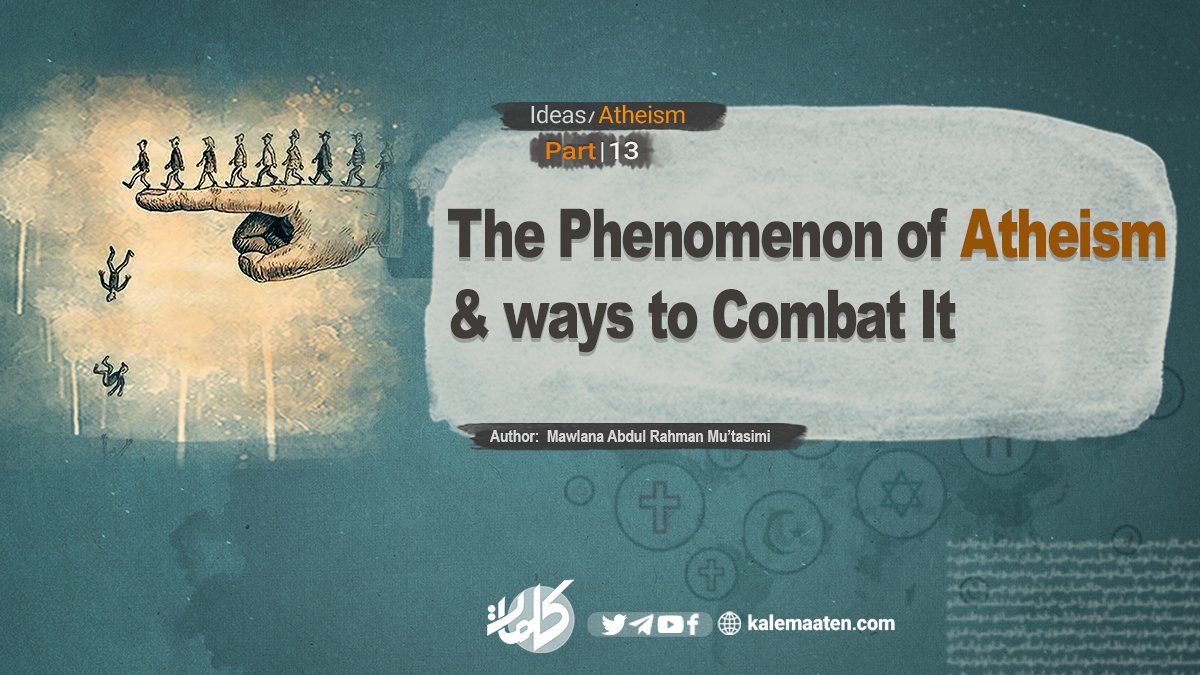
Author: Mawlana Abdul Rahman Mu'tasimi
The Phenomenon of Atheism and Ways to Combat It (Part 13)
Third: The Role of Media in the Trend Towards Atheism
Given the remarkable power of media in shaping thoughts, habits, and ultimately the personalities of individuals, utilizing it to control and guide society has become a competitive arena for various groups within the community. Pascuini believes that atheistic thought has effectively harnessed these media for its purposes to the extent that atheism is no longer merely a lack of belief in God; rather, it has transformed into a system of thought that suppresses all religions, beliefs, and their manifestations.
Violence, sex, and drugs are the three corners of the triangle of atheistic media. The American Psychological Association emphasizes in its findings that individuals who watch violent television shows exhibit less sensitivity to the pain and suffering of others and are more inclined to commit violent crimes. Children exposed to violent films often display greater aggression and, in adulthood, are more likely to engage in criminal acts than those who are not.
The pornography industry and the worship of physical beauty are among the defined roles of media, especially television. In America, an average of 15,000 sexual images are viewed each year. Fifty-six percent of television programs in the U.S. contain sexual content, displaying 150 sexual acts of unmarried couples throughout the day, while this figure is three to one for married couples. Additionally, the average family viewing time for television is estimated to be eight hours, with most of this time focusing on daily sexual incidents. The extreme promotion of beauty products conveys to consumers that if they lose their physical beauty, they will no longer hold value in society and will gradually be ostracized.
The situation regarding the use of alcohol, cigarettes, cigars, and drugs is similar. In over 90 percent of films and 50 percent of music videos and television shows, the consumption of various alcoholic beverages and drug use is explicitly or implicitly promoted. The statistics on the use of performance-enhancing drugs and the illegal use of specific medications are sharply increasing. In many films and series, the main hero or beloved character is heavily inclined toward drinking alcohol and may even be addicted to it; however, this behavior is not only not condemned but is also portrayed as attractive and pleasurable, leading teenagers to unconsciously try to imitate and repeat such behaviors.
In fact, this shift from God to self or self-centeredness is an atheistic idea that creates an empty self— a self without God that resorts to any means to fill its inner void. Sometimes it turns to performance-enhancing drugs, and at other times chooses opiates, ultimately leading to feelings of emptiness and meaninglessness.
According to Pascuini, television in secular societies has become a pretentious and rude medium that exhibits hostile and insulting behavior towards believers. It behaves in a bullying manner towards religions and constantly mocks religious values. Therefore, the control of minds by secular atheists has fostered a generation that views issues such as violence, abortion, euthanasia or assisted dying, suicide assistance, and an extreme focus on the rights of homosexuals with empathy and support; however, the pain and suffering of others and religious values are often portrayed as trivial matters and even ridiculed and condemned.
Continues…


